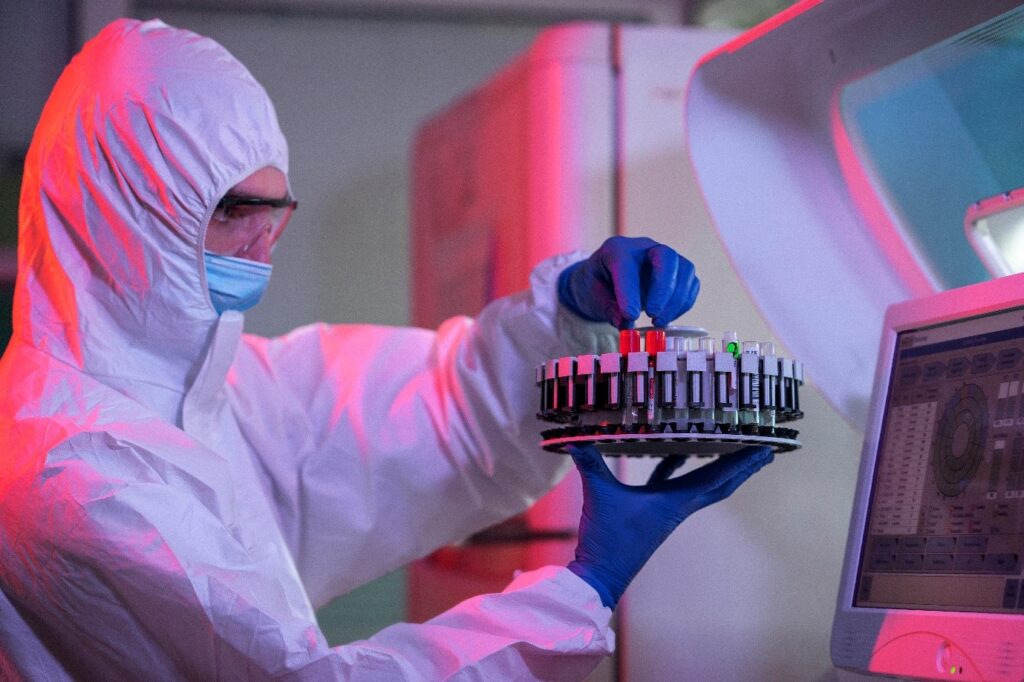
Environmental monitoring in precision medicine focuses on monitoring and analyzing factors such as political, regulatory and legal changes that affect the research, production and distribution of personalized treatments. This approach seeks to maximize the benefits of personalized medicine, mitigate risks, and promote equitable access to high-quality health care.
Ethical, bioethical and legal considerations of precision medicine.
Bioethics: Focuses on the ethical and moral dilemmas that emerge in the biological sciences and medicine. Bioethics committees act as platforms that balance scientific progress, human rights and public interest, performing advisory, educational, drafting of recommendations and promoting public participation in bioethical issues 1,2 .
Autonomy: Informed consent protects privacy, confidentiality and individual autonomy, based on ethical and legal principles 3 .
Diversity: Less than 2% of participants in genome-wide association studies are of African or Hispanic/Latin American ancestry; This lack of diversity in research can increase health disparities and limit biological discoveries applicable to all populations 4,5 .
Accessibility: Studies determine that less than 40% of people with lung cancer benefit from genetic testing and treatments, while the remaining 60% have not gained much from personalized medicine. The success of personalized medicine must be measured by the accessibility of its applications 6,7 .

The international regulatory environment seeks to standardize the evaluation of treatments in terms of effectiveness and safety. Based on ethical principles established by the 1948 Universal Declaration of Human Rights, the guidelines of the World Health Organization and the Declaration of Helsinki, the protection of the dignity and autonomy of subjects in biomedical research is emphasized. Legal frameworks such as the General Data Protection Regulation in Europe and the Health Insurance Portability and Accountability Act in the United States protect the privacy of personal and genetic data. Agencies such as the USPTO, WIPO, and EPO facilitate patent protection, although they differ in their scope of protection for specific medical innovations.
In Ecuador, the regulatory framework for precision medicine is under development, with legal provisions that reflect similar principles:
Constitution of Ecuador
- Art. 3: Universal and non-discriminatory access to health services.
- Art. 92: Right to access and control your personal data, including genetic data.
Organic Law on Protection of Personal Data (LOPDP)
- Art. 8: Informed consent of personal data.
- Art. 12, 16, 18 and 27: Access, rectification, deletion and portability of sensitive patient data.
- Art. 32 and 56: Investigation and international transfer of personal data.
Organic Health Code (COS)
- Art. 274: Regulates and monitors the protection of the human genome and genetic information
- Art. 277: Specific rules for the donation of genetic samples.
- Art. 279: Specialized genetic counseling.
- Art. 284 and 289: Regulation of health research.
- Art. 296: Update of lists of essential medicines.
- Art.304: Mandatory licenses for patents on medicines and medical devices.
References
- Suárez, EB, & Machado, AEA (2019). Convergences and divergences between ethics and bioethics. Cuban Journal of Physical Medicine and Rehabilitation, 10(2). https://revrehabilitacion.sld.cu/index.php/reh/article/view/255/412
- UNESCO. (2008). Creation of bioethics committees. UNESCO.org. https://unesdoc.unesco.org/ark:/48223/pf0000139309_eng
- Thapa, C., & Camtepe, S. (2021). Precision health data: Requirements, challenges and existing techniques for data security and privacy. Computers in Biology and Medicine, 129, 104130. https://doi.org/10.1016/J.COMPBIOMED.2020.104130
- Denny, J.C., & Collins, F.S. (2021). Precision medicine in 2030—seven ways to transform healthcare. Cell, 184(6), 1415–1419. https://doi.org/10.1016/j.cell.2021.01.015
- Yeh, VM, Bergner, EM, Bruce, MA, Kripalani, S., Mitrani, VB, Ogunsola, TA, Wilkins, CH, & Griffith, DM (2020). Can precision medicine actually help people like me? African American and Hispanic perspectives on the benefits and barriers of precision medicine. In Ethnicity and Disease (Vol. 30, pp. 149–158). Ethnicity and Disease, Inc. https://doi.org/10.18865/ed.30.S1.149
- Evans, W., Meslin, E.M., Kai, J., & Qureshi, N. (2024). Precision Medicine—Are We There Yet? A Narrative Review of Precision Medicine's Applicability in Primary Care. In Journal of Personalized Medicine (Vol. 14, Issue 4). Multidisciplinary Digital Publishing Institute (MDPI). https://doi.org/10.3390/jpm14040418
- Sadik, H., Pritchard, D., Derry, ;, Keeling, M., Policht, ; Frank, Riccelli, ; Peter, Stone, G., Finkel, K., Schreier, J., & Munksted, S. (2022). Impact of Clinical Practice Gaps on the Implementation of Personalized Medicine in Advanced Non-Small-Cell Lung Cancer. https://doi.org/10.1200/PO.22



